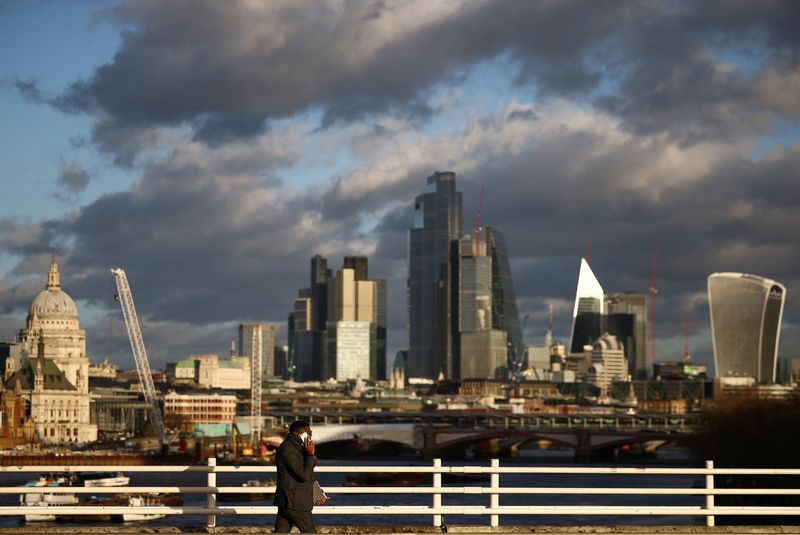By David Milliken
LONDON (Reuters) -More companies suffered insolvency last year in England and Wales than any time since 2009, government figures showed on Tuesday, reflecting the end of coronavirus pandemic support that helped many smaller businesses stay afloat.
Total insolvencies rose to 22,109 in 2022, their highest since the global financial crisis and up by 57% from a year earlier, according to data released by the British government's Insolvency Service agency.
Part of the increase in the number of companies falling into difficulty reflects the higher number of companies overall.
The rate at which companies are being liquidated rose by 50% last year, but is only the highest since 2015 and around half its peak rate in 2009.
That said, the challenges for many businesses have worsened over the past year as inflation has pushed up the cost of raw materials, wage bills have risen and higher Bank of England rates increased the expense of borrowing.
"It seems likely that corporate insolvencies will remain high and increase further in Q1 2023 and beyond," said John Cullen, business recovery partner at accountants Menzies.
The increase in insolvencies last year was driven by the commonest type, creditors' voluntary liquidations (CVLs), which dropped sharply in 2020 and early 2021 when the government provided COVID support loans to more than 1.5 million small businesses.
CVLs rose last year to their highest number since records began in 1960, and were 21% higher than if they had risen in line with their pre-pandemic trend, the Insolvency Service said.
Compulsory liquidations were back at their pre-pandemic level by the final quarter of 2022, after legal restrictions on forcibly winding companies up ended in March.

Cullen said there was now a backlog of overdue tax bills, which under normal circumstances would often have led to compulsory liquidations.
"One of the reasons we're seeing an increase in administrations and CVLs at the moment is that HMRC (tax office) is not able to pursue all of its debts as quickly as it would normally, given the number of defaulting companies and its own struggle to recruit staff," he said.